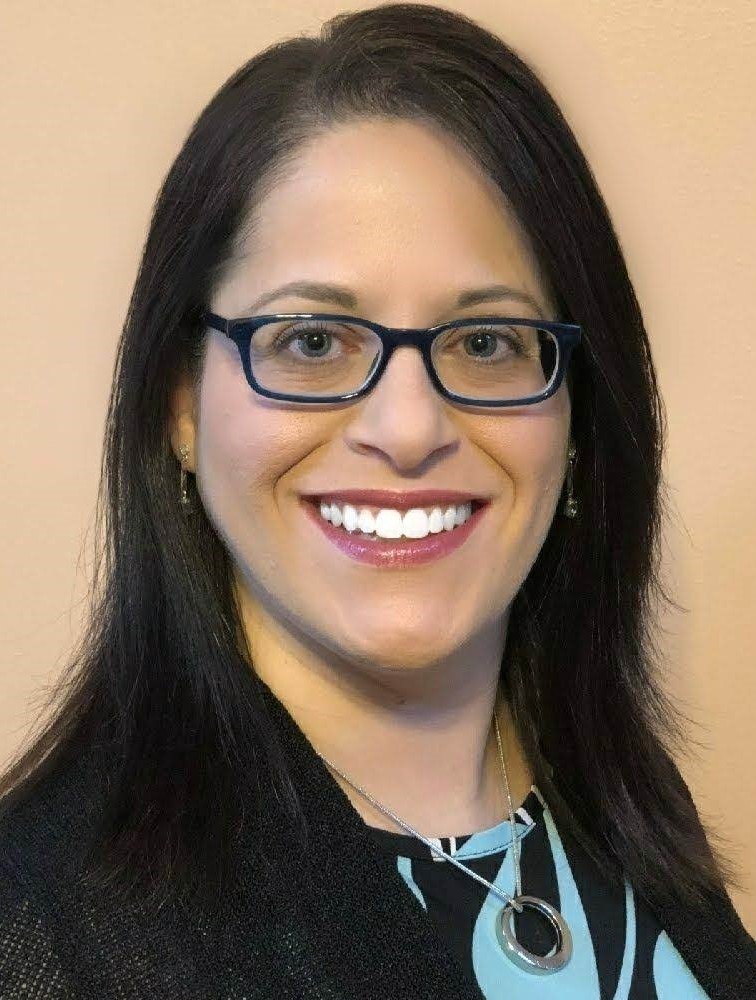
Conversations:
Lynn, hi. Thanks for speaking with CONVERSATIONS today. Tell us about your practice? What you specialize in? What your niche is?
Lynn Nanos:
Hi, Conversations! Thank you for inviting me to interview with you! I’m a mobile emergency psychiatric social worker in Massachusetts and I’ve been doing this for over ten years. “Mobile” means that the interviews occur anywhere in the community where crisis exists. My main role is to ensure that people are safe. This might mean referring them to outpatient services, or arranging for hospitalization if they are posing a danger to themselves or others, or are unable to care for themselves. My favorite population to work with involves those suffering from psychosis. Anyone who reads my new book, “Breakdown: A Clinician’s Experience in a Broken System of Emergency Psychiatry,” will immediately realize this.
Conversations:
I can’t wait to talk about your book, Lynn. But let me dive deeper here. When you say mobile . . . who do you work for? A hospital? Who gets in touch with you to say there’s some crisis or emergency?
Lynn Nanos:
I work for a large agency that owns continuously staff-supervised residential programs for recipients of the state’s Department of Mental Health. Besides basic psychotherapy and psychopharmacology services, the agency also runs clinical outreach services for recipients of the state. In other words, although I don’t directly work for the state, many of the patients I help receive state-funded services.
The agency I work for is contracted with a couple of local hospitals, thus I manage many cases at hospital emergency departments and inpatient medical units.
Literally anyone in the community can refer people to the mobile crisis team. Many referrals come from outpatient clinics, residential programs, police officers, family members, and sometimes the patients.
Conversations:
Fascinating work. Take me through a recent example of some emergency you had to respond to . . . lead CONVERSATIONS through a recent situation . . . because this is very crucial and life saving work . . .
Lynn Nanos:
A homeless shelter called me to go there and evaluate a man whom I’ll refer to as “Rick” (not using his real name). Rick has been sleeping there for weeks since getting administratively discharged from his group residential program because he physically assaulted a peer there. As I read through recent records by other clinicians, and my own evaluation of him in previous months, I quickly realize this assault was driven by delusion. He was functioning well at the residential program when he took his antipsychotic medication, but deteriorated rapidly once he stopped taking this, which led to the assault.
So unmedicated at the homeless shelter, he regularly experiences auditory hallucinations, as evidenced by frequently talking or yelling when there’s no one near him and by frequently whispering things inaudibly. Today, the staff told me that Rick approached a peer while the peer was laying in his bed and yelled at him without provocation “you will continue to hurt my family if you stay alive! Watch yourself or I’ll have to end you.” Keeping in mind that Rick has no family, I suspect he’s at risk for seriously harming this peer due to untreated psychosis. I also consider that Rick has a history of being imprisoned for approximately twenty years due to either serious assault or murder (records are a bit sketchy).
I authorize the involuntary transport of Rick to the hospital, in hopes that he gets admitted to an inpatient unit where he could get restarted on antipsychotic medication. The police assist with ensuring that he cooperates with the ambulance crew, which he does.
About three weeks later, I’m driving my car in the neighborhood surrounding the homeless shelter and happen to see Rick. He’s alone and talking to no one in sight, presumably unmedicated again. The most common reason for treatment non-compliance is the lack of awareness of being ill. Rick didn’t understand that he needed medication, thus didn’t see any need for it.
Conversations:
Tragic and compelling story, Lynn.
Are you able to follow your clients within this model or is most of your work more dealing with that specific emergency . . .? Like an ER surgeon or on staff physician . . .?
Lynn Nanos:
The nature of emergency services involves lack of ability to follow patients over the long-term. But the revolving door of the system ensures that I will repeatedly evaluate the same patients, thus I know many of them from my previous work. Many of them are often prematurely discharged from inpatient units and inevitably destabilize or are released from jails without proper treatment.
Conversations:
Very sad situation . . . Lynn . . . let’s talk about your book. Tell CONVERSATIONS all about it . . . What it’s about? How they can buy it? Do you have a link to it?
Lynn Nanos:
“Breakdown” walks readers through over 350 citations weaved into clinical vignettes. Schizophrenia and bipolar disorder are emphasized, alongside chapters about malingering and borderline personality disorder.
“Breakdown” offers common-sense solutions for reform. It aims to:
1)Repeal the federal Institutions for Mental Diseases exclusion law
2)Increase the number of inpatient psychiatric beds
3)Curtail malingering
4)Impose consequences on inpatient units that discriminate against the most challenging cases (most violent, lacking insurance, etc.)
5)Revise the Health Portability and Accountability Act
6)Promote Assisted Outpatient Treatment (involuntary outpatient treatment)
7)End government funding of organizations that tout the belief that mental illness doesn’t exist
8)Revise psychiatric involuntary transfer and hold laws
9)Persuade organizations to classify borderline personality disorder as a serious mental illness.
Since “Breakdown” got published in the first week of October 2018, it ranked in the top 50 best-selling books in Law: Mental Health, Law: Ethics & Professional Responsibility, and Schizophrenia for many months on Amazon.
To learn more about my book, Breakdown, and myself, please visit my website at https://lynnnanos.com/.
To purchase “Breakdown” on Amazon, please visit:
Conversations:
That’s so ambitious, Lynn. Take Conversations through the genesis of this book. Have you written any books before? You must have worked on this for years? To take on such a colossal project like this . . .
Lynn Nanos:
Thank you for your interest! This is my first (and last) book. Seeing so much injustice and dysfunction daily at my place of employment motivated me to do something more. I began developing the book toward the end of 2016. Continuously full-time employed, I abandoned most of my hobbies and worked on the book mostly on weekends. It was a labor of love.
Conversations:
How did you get this published, Lynn? Did you have a publisher? Is this self published? What was that process like?
Lynn Nanos:
I self-published for control, independence, and higher royalties. I had heard lots of stories about authors arguing with editors and publishers and I did not want to encounter the stress of that. Self-publishing has an undeserved stigma. Besides spending many thousands of dollars to create the book, I worked harder and longer to create the book than many traditional authors. If you think carefully about what it takes to write a book, you’ll realize how much work is involved.
Conversations:
I certainly do. It’s a massive undertaking and very inspiring and impressive.
Are you trying to promote the book to social work programs throughout the country?
Lynn Nanos:
Thank you! I’m rewarded by inspiring others. I haven’t formally approached any universities yet. That’s coming up.
Conversations:
What other plans do you have for the book, Lynn? It’s so ambitious in its scope. So comprehensive.
Lynn Nanos:
I am going to sell copies of “Breakdown” at the Crisis Intervention Team International (psychiatric-specialized police officers) conference this coming August. I’ve already engaged in several public interviews and several chapters of the National Alliance on Mental Illness (NAMI) published reviews of it in their newsletters. I also lectured about it at the NAMI of Cobb, GA. The detailed list of all events is on my website – http.lynnnanos.com. I am also looking for new opportunities for reviews, interviews, lectures, and live sales.
Conversations:
It is truly an awesome undertaking . . . it seems like you’re completely engrossed in this book, Lynn. But my final question is what’s next? What’s the next “chapter” for Lynn Nanos after giving birth to this baby of a book? Where do you want to take your career? Private practice? Teaching at a university? Both . . .?
Lynn Nanos:
“Breakdown” is quite controversial and “calls out” administrators and legislators. Because of its controversy, I’m surprised that I haven’t seen any signs of my place of employment trying to get rid of me. For now, I’m satisfied staying there. All my colleagues and supervisors know that I most love working on police-involved cases because they often involve psychosis, thus I am advocating to take on more of those types of cases.
I could never do private practice because I wouldn’t be able to access the most dangerous population there.
I’m not interested in teaching at a college or university because I believe I would miss the clinical work too much. And this is why I don’t want to become an administrator.
Conversations:
Lynn, CONVERSATIONS could speak with you for hours but it’s getting late for you. We’re so grateful for the powerful work you’re doing and excited for you and your book.
Lynn Nanos:
I love talking about it! Thank you for the opportunity!













